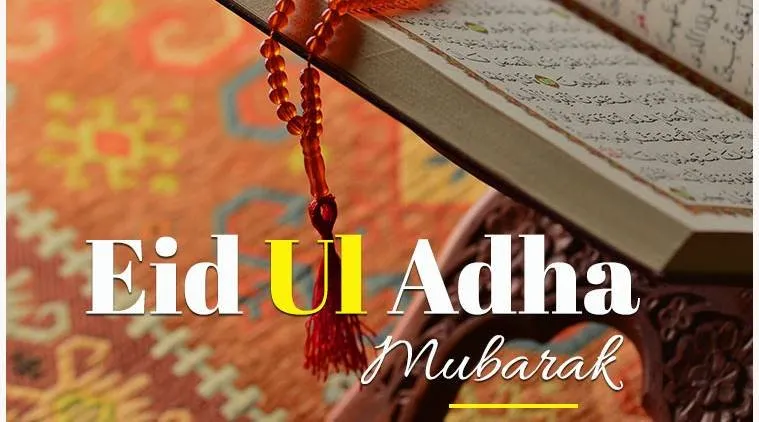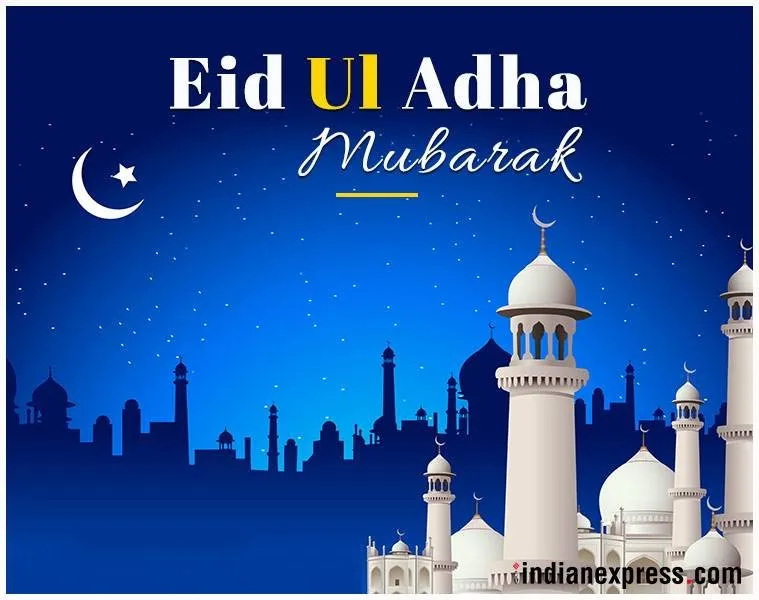
Eid al-Adha (Arabic: عيد الأضحى, translit. ʿīd al-ʾaḍḥā, lit. 'Feast of the Sacrifice', ,also called the "Festival of Sacrifice", is the second of two Islamic holidays celebrated worldwide each year (the other being Eid al-Fitr), and considered the holier of the two. It honors the willingness of Ibrahim (Abraham) to sacrifice his son as an act of obedience to God’s command. Before Abraham could sacrifice his son, God provided a ram to sacrifice instead. In commemoration of this, an animal is sacrificed and divided into three parts: one third of the share is given to the poor and needy; another third is given to relatives, friends and neighbors; and the remaining third is retained by the family.
In the Islamic lunar calendar, Eid al-Adha falls on the 10th day of Dhu al-Hijjah. In the international (Gregorian) calendar, the dates vary from year to year drifting approximately 11 days earlier each year. Eid al-Adha is the latter of the two Eid holidays, the former being Eid al-Fitr.

In languages other than Arabic, the name is often simply translated into the local language, such as English Feast of the Sacrifice, German Opferfest, Dutch Offerfeest, Romanian Sărbătoarea Sacrificiului, and Hungarian Áldozati ünnep. In Spanish it is known as Fiesta del Cordero or Fiesta del Borrego (both meaning "festival of the lamb"). It is also known as Id ul Baqarah in Egypt, Saudi Arabia and in the Middle East, as Eid è Qurbon in Iran, Kurban Bayramı ("the Holiday of Sacrifice") in Turkey, Bakara Eid in Trinidad, Qorbani Eid (কোরবানী ঈদ) in Bangladesh, Eid el-Kebir in Morocco, Tfaska Tamoqqart in the Berber language of Jerba, Iduladha, Hari Raya Aiduladha, Hari Raya Haji or Qurban in Singapore, Malaysia, Indonesia and the Philippines, Bakra Eid (بکرا عید)[Goat Eid]" or "Bari Eid بڑی عید" in parts of Pakistan and India and Tabaski or Tobaski in Senegal and West Africa (most probably borrowed from the Serer language — an ancient Serer religious festival.
The following names are used as other names of Eid al-Adha:
ʿīd al-aḍḥā / ʿīd ul-aḍḥā means "sacrifice feast" is used in Urdu, Hindi, Assamese, Bengali, Gujarati, and Austronesian languages such as Malay and Indonesian.
Eid al-Kabir means "the Greater Eid" (the "Lesser Eid" being Eid al-Fitr) is used in Yemen, Syria, and North Africa (Morocco, Algeria, Tunisia, Libya, and Egypt). Translations of "Big Eid" or "Greater Eid" are used in Pashto (لوی اختر Loy Axtar), Kashmiri (Baed Eid), Urdu and Hindi (Baṛī Īd), Bengali (বড় ঈদ Boro Id), Tamil (Peru Nāl, "Great Day") and Malayalam (Bali Perunnal, "Great Day of Sacrifice") as well Manding varieties in West Africa such as Bambara, Maninka, Jula etc. (ߛߊߟߌߓߊ Seliba, "Big/great prayer").
"Bakr-Eid" that word of Bakr referred to al-Baqara (in Arabic) means "The Cow". Bakr-Eid is used in Urdu and Hindi language. Also, the translation of Bakr-Eid as Id ul Baqarah is used in Egypt, Saudi Arabia and in the Middle East
Qurbon Hayiti (Kurban Eid) is used in Uzbekistan
"Hajj celebration day" is used in Malaysian and Indonesian, in the Philippines